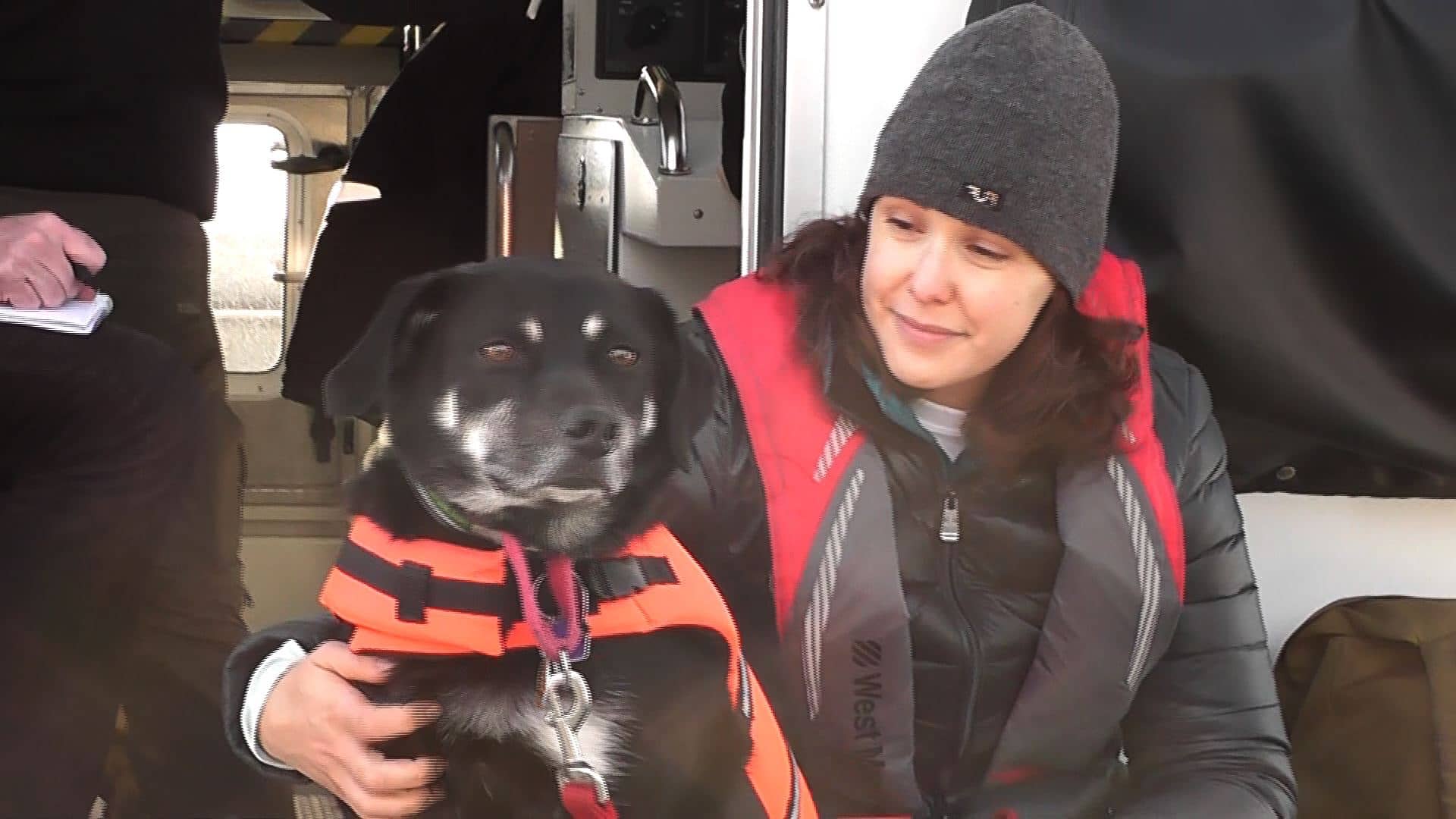[jwplatform 1FzS0fkj]

While search and recovery may not be an every day activity for the emergency response unit in Greenwich, the K9s and officers are always prepared.
“Today we are conducting some joint training with the New England Canine Search and Rescue Unit,” said Lieutenant John Brown, Operations Division of the Greenwich Police Department. “They are a volunteer organization and we have three dogs here today with their handlers. They are specially trained for body recoveries – cadaver dogs.”
We headed to Island Beach were the dogs – Falcon, Zeva and Max trained on the boat and on the shore.
Falcon and her owner Deb Monde are from the Farmington Fire Department K9 Unit. Patrol Sergeant Erica Vieira and her dog Max are from the University of Rhode Island’s Police Department.
“The dogs are able to scent from sources that are deep under the water. Sometimes it is a lot easier to send a dog out on a boat to do scent work in a situation that can be dangerous for a diver,” said Lindsey Taylor. Lindsey Taylor is a Greenwich Emergency Services (GEMS) Emergency Medical Technician (EMT) and volunteers with the Greenwich PD Operations Division with her dog Zeva.
Officers say training the dogs on the boat and in the water is different than on land.
“When we put the dogs on the boat, we actually take the ability away from the dogs to move on their own. We become a team for the dog to realize that if you are moving on the boat, the boat will turn with you,” said Deb Monde. “That is really the hardest part of the training is to get that dog to realize that you are driving this boat and you are going to find the odor when we communicate together.”
“We train as much as we can. We like to take advantage of as many joint trainings as we can get,” said Taylor. “We trained in Stamford Fire Department’s Dive Team a couple of months ago. We try to train with as many teams as will have us and just try to build that good working relationship.”
And while prime boating season may be over, there are things boaters need to remember if they go out in cooler weather.
“On a nice day like today, the water is probably about 54 degrees. Anything under 70 degrees is considered cold water so it is important to know that your survivability in this type of water is greatly reduced,” said Lt. Brown. “It is reduced a – because of the cold but also for the potential of someone coming upon you and helping you. What we try to instill upon the boaters is: A. Always wear a life jacket. B. Let someone know where you are going and when you are expected to be back and C. Have a form of communication.”




